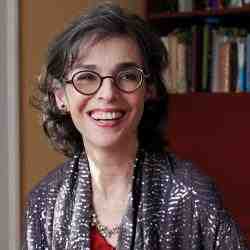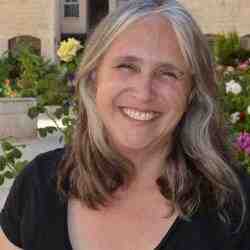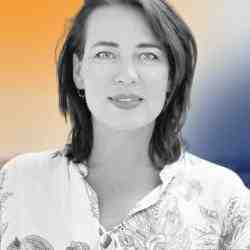Introduction
Realizing that the quest for gender equality requires a new generation of leaders, Maryam is creating a new cadre of teen girls capable of overcoming the socio-cultural inequalities that have hindered rural Moroccan women and others from being their own catalysts of change and self-empowerment.
The New Idea
While a fundamental right in Moroccan Law, access to education remains more of a concept than a reality for the rural female population. In rural Morocco, the rate of girls’ high school enrollment is 39%, compared with 80% for urban girls, and 62.62% for girls nationwide. In 2014, illiteracy was more common among rural women, with a rate of 60%, against 31% for urban women. This gap in attendance rates stems from a high level of high school and college dropouts in rural areas amongst female students deeply rooted in the rate of girl brides, which officially is only 16%. Actual figures, however, are much higher and girl brides are still commonplace in underserved areas.
Believing in the power and potential of teen girls, Maryam Montague launched Project Soar in 2013, an agile and easily replicable model, empowering teen girls in Morocco’s rural and semi-rural areas, and nurturing their agency, self-esteem, negotiation skills and voice. Generally, these girls are at high risk of dropping out of school, early marriage and teen pregnancy. After going through the year-long after school program, the impact is sustained through community organized Girls Clubs.
Project Soar (PS) is creating a path to empowerment for marginalized teen girls. Through a one-year, easily replicable model implemented by community facilitators, PS is able to impact a large number of rural and semi-rural girls. The PS curriculum is packaged into a portable kit, called Project Soar in a Box (PSB). Project Soar in a Box provides teams of woman facilitators at each site with all the tools they need to work with “squads” of teen girls. This model has allowed PS to scale quickly and reach remote areas. The PS Girl Leader Clubs are a sustainable mechanism for ongoing leadership and civic activism. PS’s girl empowerment program and workshops are girl-centered and not a continuation of school and traditional learning. PS Girls explore their abilities by engaging in a variety of special activities such as art, music, exercise, etc. Sports is popular among PS girls and something in which girls in semi-rural and rural Morocco don’t often engage in. Engaging in sports enables girls to participate in friendly competition while developing critical team building and problem-solving skills. All PS activities are fun-inspired and reinforce workshop learning by using all of the senses.
Among her most notable achievements is partnering with a relatively conservative Islamic government of Morocco to support this feminist empowerment program and offer the model through Morocco’s youth houses in underserved areas. Thus far, Maryam has worked with 2300 girls with the number of girl brides dropping by 20%. With 43 sites across Morocco, Maryam has now expanded to 5 sites in Uganda and is currently in discussion to replicate the model in Palestine, Northern Iraq and four countries in West Africa through the Education Ministries.
The Problem
Several barriers including traditions that favor boys’ education over girls’, girls forced to work, and early marriage prevent teen girls from having a voice and standing up for themselves. 90% of Moroccan males recalled having greater freedom than their sisters. Girls who do go to school have more work at home than boys, making it hard to keep up with their studies. As many parents in underserved areas are semi-literate or illiterate, they are unable to provide homework support.
The rate of pre-school enrollment for rural girls stood at 25.4% in 2019. Meanwhile, 53.9% of their counterparts in urban areas attend pre-school. At the primary school level, the rate jumped to 99% in 2017-2018, compared to 96.2% for urban girls, 98.5% for girls at the national level, and 100% for rural boys. The rate at the high school level is 39%, compared with 80% for urban girls, and 62.62% for girls nationwide. Finally, the rate at the college level was as low as 12.48% against 57.39% for urban girls, 38.1% for girls at the national level, and 19% for rural boys. The staggering drop of high school enrollment compared to primary school enrollment levels indicates a gap that needs to be tackled.
Nameless and faceless, teen girls lack the knowledge and skills to stand up for themselves. They suffer problems of low self-esteem, and their culture often dictates them to be silent and obedient. Adolescence is a turbulent time physically, and many girls do not understand the changes in their body. Those who do go to school, lack basic empowerment skills that will help them to succeed. Also, many girls don’t attend school during their periods because families can’t afford menstruation supplies, causing them to fall behind in their classes or ultimately drop out. When girls stay in school, they are more employable and are 3 times less likely to become child brides. Teen girls rarely understand their rights and are not supported in making the right decisions for their futures, pertaining to education, careers, marriage and motherhood. Many girls ultimately will follow the paths of their mothers (often child brides themselves), and the cycle continues unabated.
There is also very little school investment in extra-curricular activities. While boys can play sports, are more likely to go to youth centers, poor and marginalized girls are only allowed in very few settings and there aren’t any all-girl, free and safe spaces at all.
One of the major by-products of not having a safe space is not having a voice. When girls don’t have a voice, they are forced to leave school and marry early. Decisions are always made on their behalf.
Yearly, millions of girls become child brides, a practice sustained by poverty, lack of education, cultural practices, and insecurity. While the official rate of girl brides (under 18) in Morocco is only 16%, these figures are likely much higher, as many are not officially registered. Though laws were amended to stop child marriage in 2014, legal loopholes remain and girl brides are still largely common in underserved areas.
The Strategy
Through Project Soar, Maryam is championing girls’ rights to achieve mindset, behavior and policy changes. The first holistic model of its kind in the Maghreb region, Project Soar believes in the power and potential of teen girls. Rooted in Project Soar’s theory of change is the notion that empowered teen girls can influence their families, peers, and communities to ultimately alter the gender dynamic.
Project Soar empowers teenage girls in squads of 15-20 girls through a curriculum facilitated by trained young women whom Project Soar calls ambassadors. These young women are recruited from the communities where they serve and now may come from older graduates of the program. Project Soar tackle many of the barriers faced by teen girls. It helps ensure that girls stay in school and graduate. When girls stay in school, they earn valuable skills for their future, become better equipped to make good decisions for themselves, realize their rights and full potential in life. Written parental permission is required to become a Soar Girl, ensuring that daughters have necessary support to participate, even in very traditional or conservative environments. Parents and girls must sign a written commitment on school adhesion to enroll in the after-school program. Project Soar provides girls with valuable skills to improve their outcomes in school and later life.
At a macro level, PS is institutionalizing successful programs by building with stakeholders from Ministry of Education & government officials. It also builds relationships with local NGOs, donors and policymakers for innovative program development. At the PSB site level, the program is embedded within the community via a network of 103 trained Empowerment Facilitators who communicate and gather feedback regularly from PS girls and families. At the core of it all, PS’s sole focus is empowering the PS girl herself to manage her life and forge her path. Below are strategies used to ensure the PS solution stays in the communities served to grow with beneficiaries, garner support from stakeholders and PS families, and continue empowering more teen girls:
Sustainability via Community Integration
PS has an MOU with the Ministry of Youth and Sports and collaborates to empower girls at their 32 youth centers and three girls’ boarding houses across the country. This ensures community ownership and an even greater sense of purpose at the community centers.
PS works directly with adolescent girls from traditional backgrounds that notably limit women’s ability to access education and sexual and reproductive freedom, which, in effect, limits their future career prospects and financial stability. When girls move through the PS curriculum they become a change agent in their own homes and communities. As more and more teen girls participate in the PS program, PS is facilitating increased dialogue between girls and community members through Community Dialogues and building increased understanding that girls should have the same rights and opportunities as boys through these inclusive discussions.
Sustainability via Partnerships with Ministries of Education
Progress to provide an equitable world for teen girls happens at the local community level and national level within countries. By forming partnerships with Ministries of Education and school systems, PS is increasing in commitment to girls’ empowerment and gender equality in secondary schools, increasing the capacity to implement girls’ empowerment and leadership programming in secondary schools, and building evidence around teen girl performance in schools.
Listening + Learning Approach via Monitoring + Evaluation
PS has continuously adapted and improved its implementation since its inception in 2013. The PS curriculum has gone through 2 full iterations based on feedback loops from 100+ Moroccan women Empowerment Facilitators. These grassroots Facilitators are an integral part of PS and a critical link to the hundreds of PS teen girls around the country. Facilitators report back successes, challenges and opportunities after each workshop using the Workshop Feedback Form. At the end of each module, they use the Module Evaluation Form to report on results of written evaluations that the girls complete themselves. Calls are also scheduled with Facilitators twice a month to benefit from their insights. Of note, Facilitators are encouraged to adapt the curriculum to their needs, using local and relevant examples and alternate activities if they wish. (For example, some sites choose to have prolonged workshops to discuss menstruation.) Regular meetings with the Girls Advisory Board, also allow PS staff to get direct feedback from PS girls themselves via their elected girl leaders, especially on matters related to the Girl Leader Clubs.
Project Soar’s programs help girls to become empowered women, able to lift up their families, their communities and ultimately their nations. Currently, Project Soar has 43 sites, and offers its services in partnership with the Ministry of Youth and Sports. It has a 3-year partnership with the Ministry to introduce the program at 30 government-sponsored youth houses which are located in underserved areas. So far, Project Soar has graduated 2,300 Soar Girls, with 900 Girl Leaders conducting their own empowerment circles. In 2021, Project Soar will be adopted in grade 10 of the first 30-50 public schools across Morocco. Some of Project Soar’s funders include the Middle East Partnership Initiative (MEPI), the Australian Embassy in Morocco in addition to the Moroccan government.
In 2020, Maryam was able to expand Project Soar-in-a-Box to five sites in Uganda through a partnership with an existing local nonprofit organization, Open Spaces, that already worked with teenagers to promote debate skills. She has plans to develop localized models in Palestine, Northern Iraq and four countries in West Africa in partnership with their local governments. The uniqueness of Maryam’s approach lies in her ability to adequately localize the curricula to be relevant for the communities she works with, and offer a highly structured turnkey model that is fairly easily replicated and scaled. She also offers a promising pathway for the impact to be sustainable through community-supported Girls Clubs. Her ambitious vision is to enable all girls to have access to these skills and experience self-determination.
The Person
Maryam was raised in a feminist in a bi-cultural extended family. Born in Egypt to an American father and Iranian mother, her family deeply cared about social justice and community service. Her father had always worked in the field of reproductive rights, more recently shifting to disaster relief. After living in Egypt and Tunisia, her parents moved to the US, where she spent much of her childhood in the suburbs of New York, where she grew up in an extended family with four of her Iranian cousins, all of whom were girls and the expectation in the household was that girls should work hard at school, succeed and go on to have challenging careers. In retrospect, she always has been part of different girl squads herself.
As she went to an all-female high school and college, Maryam continued to be immersed in a female positive safe space where girls and women were supported to excel. These were years steeped in feminism, where she witnessed first-hand the power and potential of girls and women, as all her role models – teachers, advisors, and student leaders – were female. At school, Maryam regularly participated in marches to protest violence against women, rape culture, and Apartheid.
Maryam’s first job out of college was with a former democratic party leader and prominent diplomat. Entering the “mixed world”, Maryam noticed how easy it was to get intimidated by men who abused their power in diverse situations.
Witnessing this first-hand, Maryam built a deep commitment to ensure girls have a better and more equal chance in life. With the NDI, Maryam moved from Mali to Nepal to Namibia finally landing in Morocco in 2000. In 2004, she joined Management Systems International based out of Morocco, where she served as a senior associate. In 2016, Maryam decided to leverage the knowledge she acquired from the international community and started a program to work with girls in the village Douar Laadam where they lived in Morocco, outside of Marrakesh. As she gained the trust and acceptance by parents in the village, she quit her lucrative job at MSI to develop Project Soar as a scalable program to work with teenage girls.
During her professional career in both the non-profit and for-profit world, Maryam remained engaged in work that supported girls and women, including programs to combat child labor, advocacy campaigns for women’s political participation, capacity building for women candidates at all levels of office, and supporting women’s parliamentary caucuses. Realizing the power of her upbringing and surroundings, Maryam became concerned about the loss to society when teen girls were locked in a cycle of early marriage and early motherhood. To break this cycle, Maryam started Project Soar as a cumulative outgrowth of all that she had lived, learned and experienced.
Maryam has been living in Morocco for several decades with her architect husband and two children. Their decision to settle in Morocco some 15 years ago was based on affinity and a feeling of kinship for the country. To buy land, the government required that they set up an investment project because it was productive agricultural land. That requirement gave birth to Peacock Pavilions in 2006, a boutique hotel conceptualized together and designed by her husband. Maryam documented her journey in a blog she started two years later, through which she gained a large following by those interested in Moroccan design. It took four years to complete the boutique hotel which opened in 2010 and several years after before it became profitable. Maryam started a shop inside the small hotel to sell Moroccan carpets, textiles, and eventually her own line of homewares, clothing and jewelry. She said that as soon as they made money, they decided that they wanted Peacock Pavilions to be a social business which supported Project Soar. She holds an MA from the John Hopkins School of Advanced International Studies and a BA with honors from Smith College.



